Abstract
The laboratory examination, by microscopic or bacteriological methods and by counterimmunoelectrophoresis, of CSF and blood from 2653 patients with purulent bacterial meningitis, including those with clinically diagnosed meningococcal infection, was carried out between June 1980 and June 1984. The results showed three main etiological agents: meningococci (79.9%), pneumococci (10.8%) and Haemophilus influenzae type b (5.25%). Out of 488 Neisseria meningitidis strains isolated from the CSF or blood, 58.2% belonged to serogroup A, 17.2% to serogroup B, and 14% to serogroup C; infection due to the B serogroup reached nearly 59% among children in 1984. Serotypes were determined in 131 out of 151 strains of Streptococcus pneumoniae and the most frequent were types 1, 19 and 3; type 34, which was isolated from 4 patients, is not a component of the pneumococcal vaccine. The age groups at high risk were children under 5 years old (for meningococcal infection), adults and babies in the first year (pneumococcal meningitis), and children under 3 years, especially between 6 months and 2 years old (H.influenzae type b infection).
Full text
PDF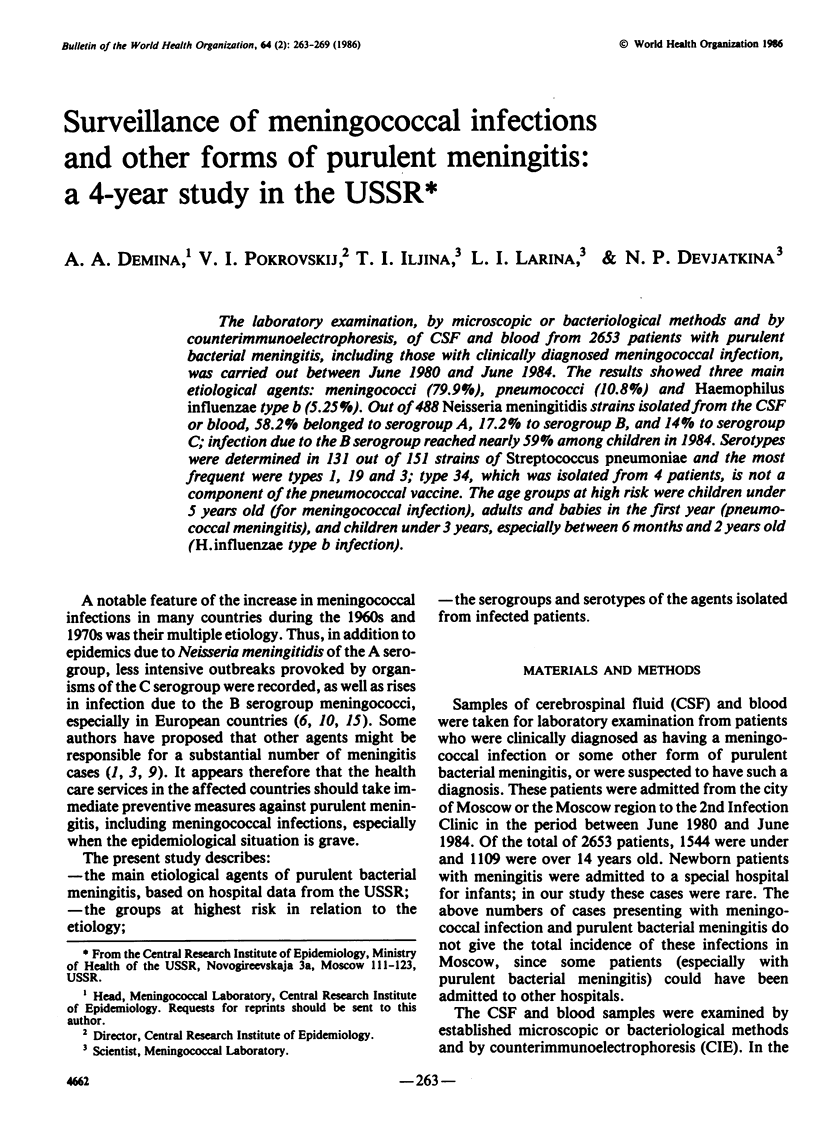
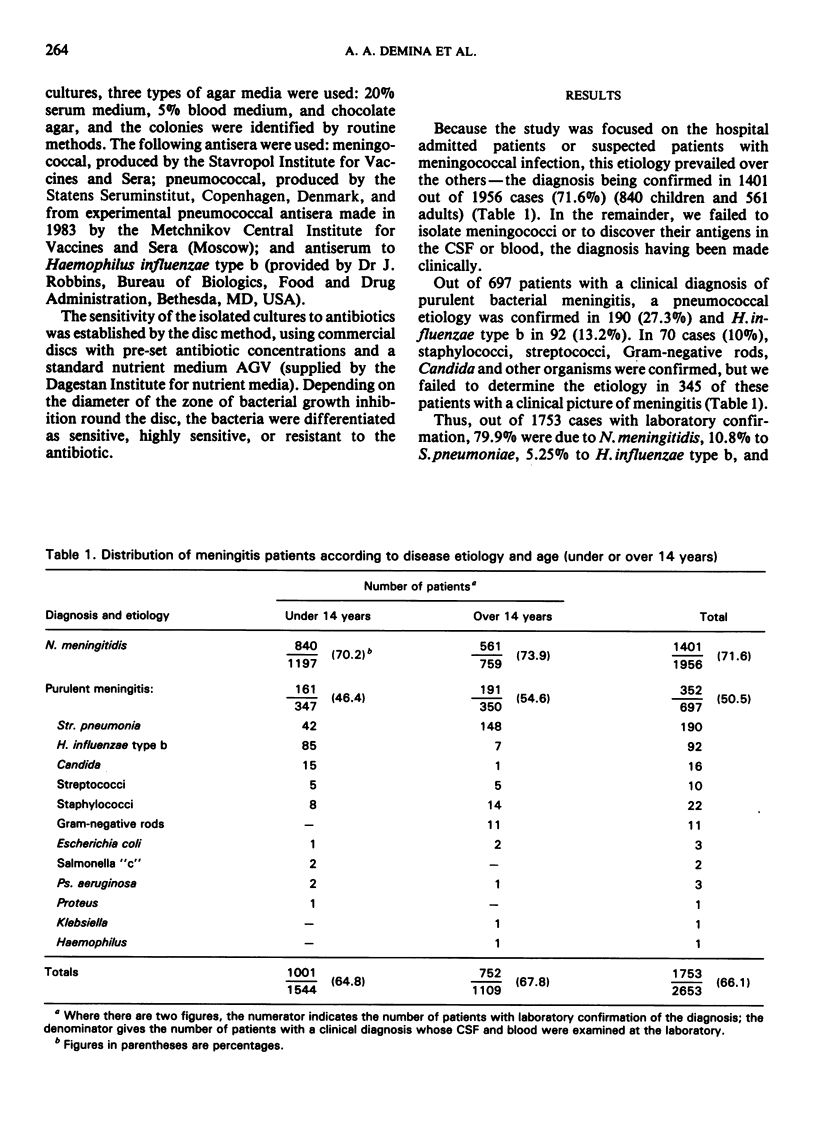
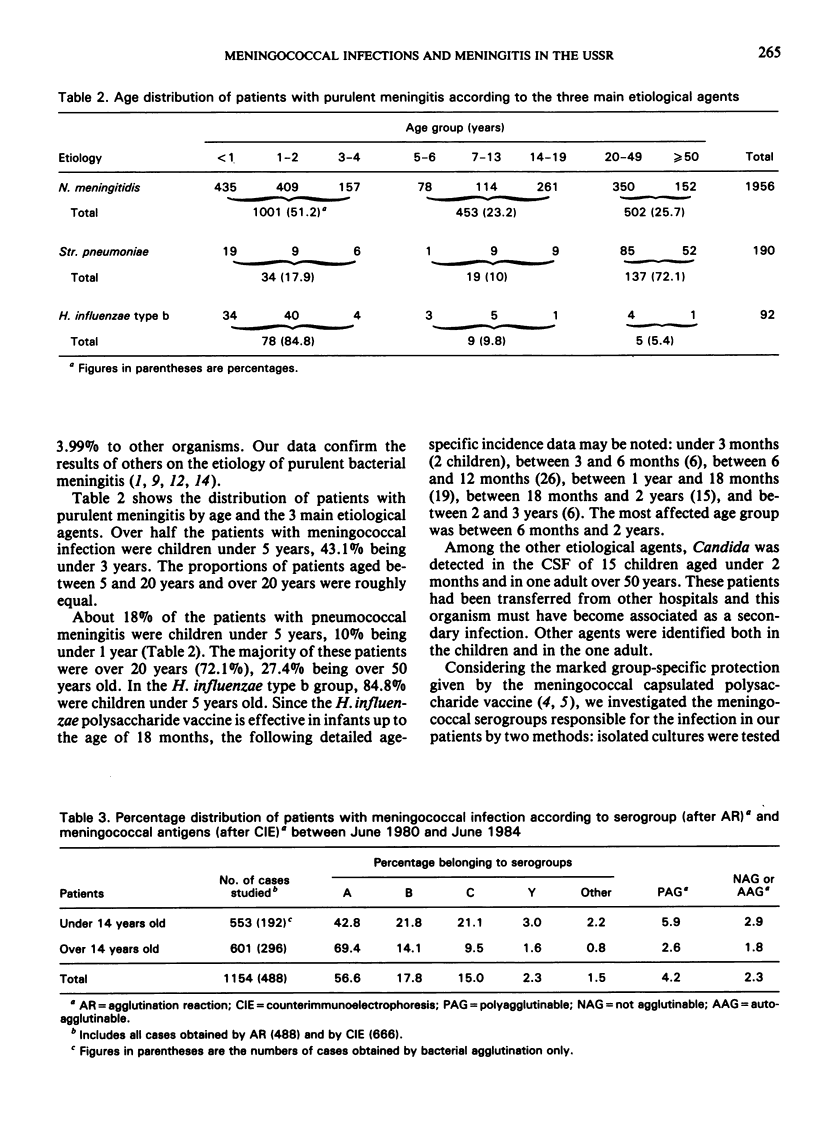
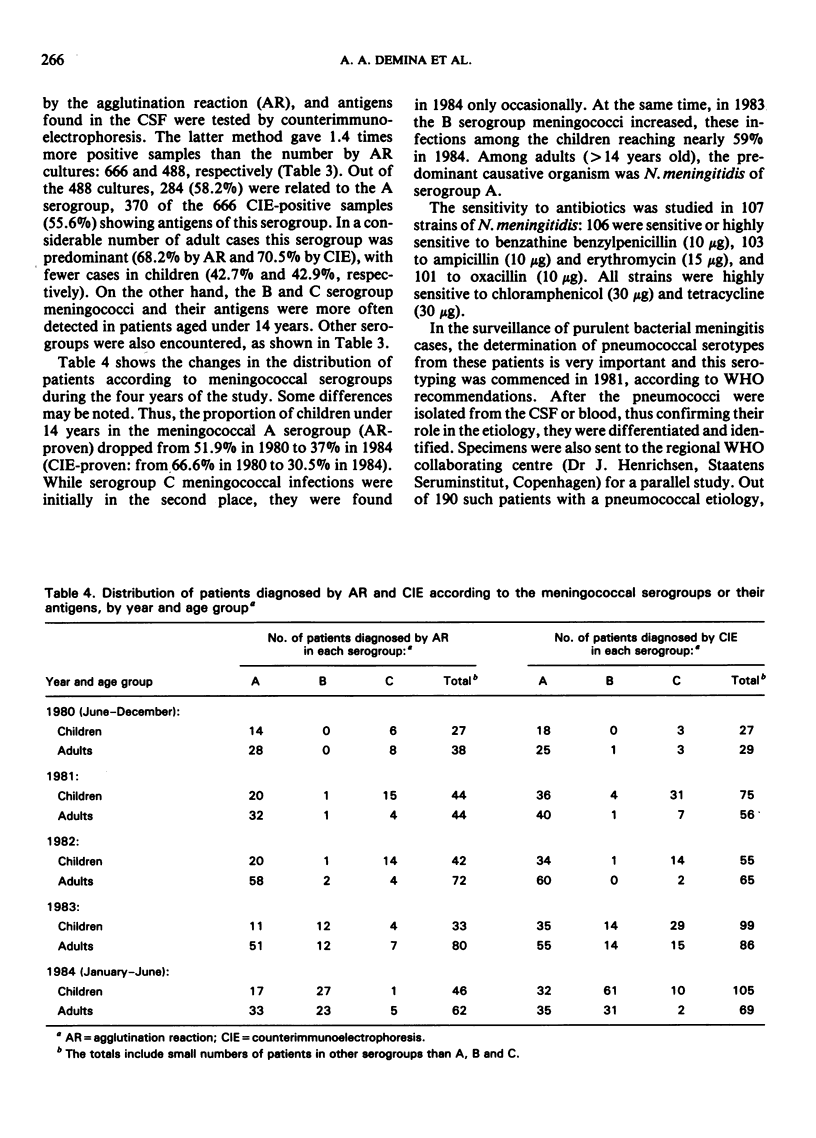
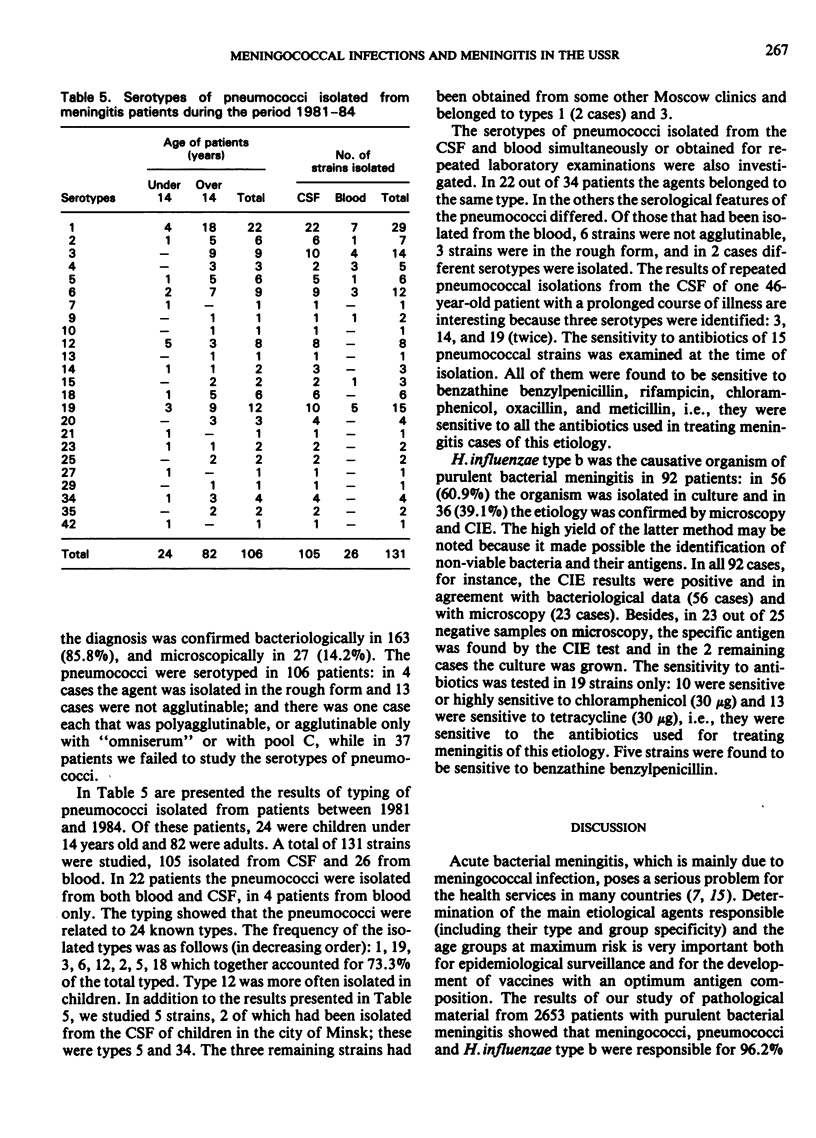
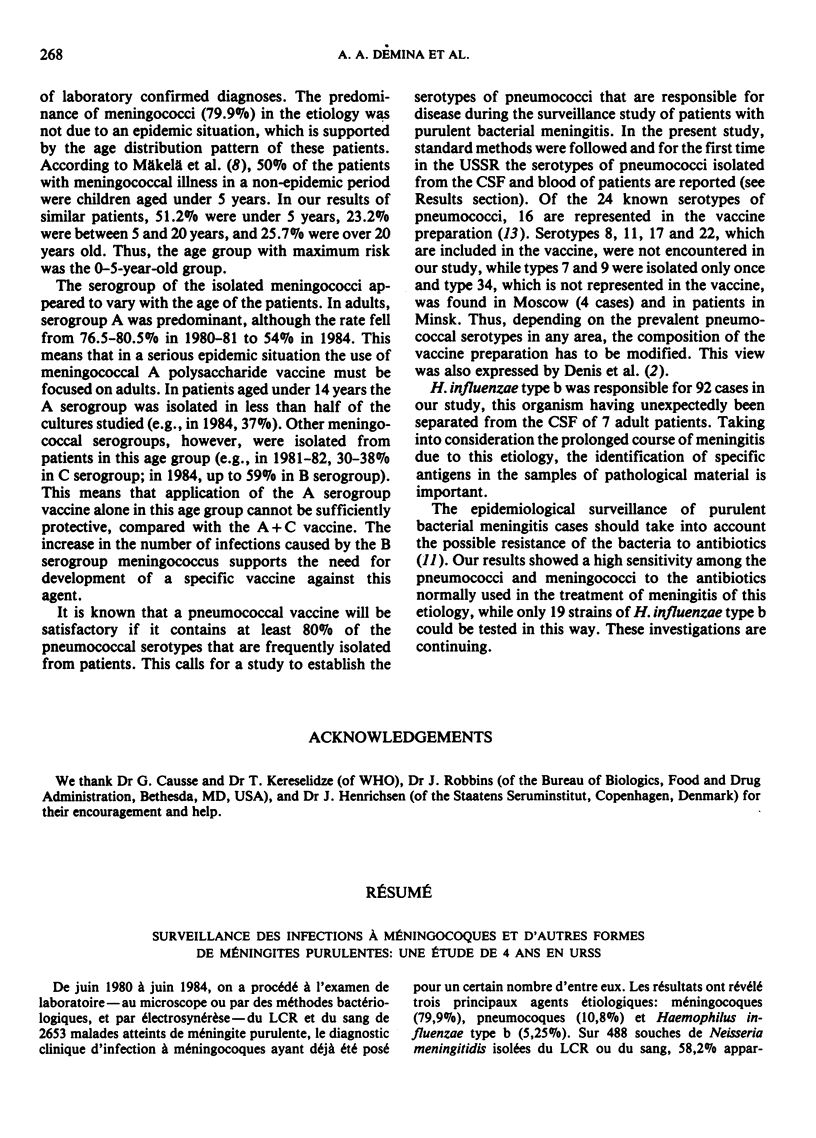
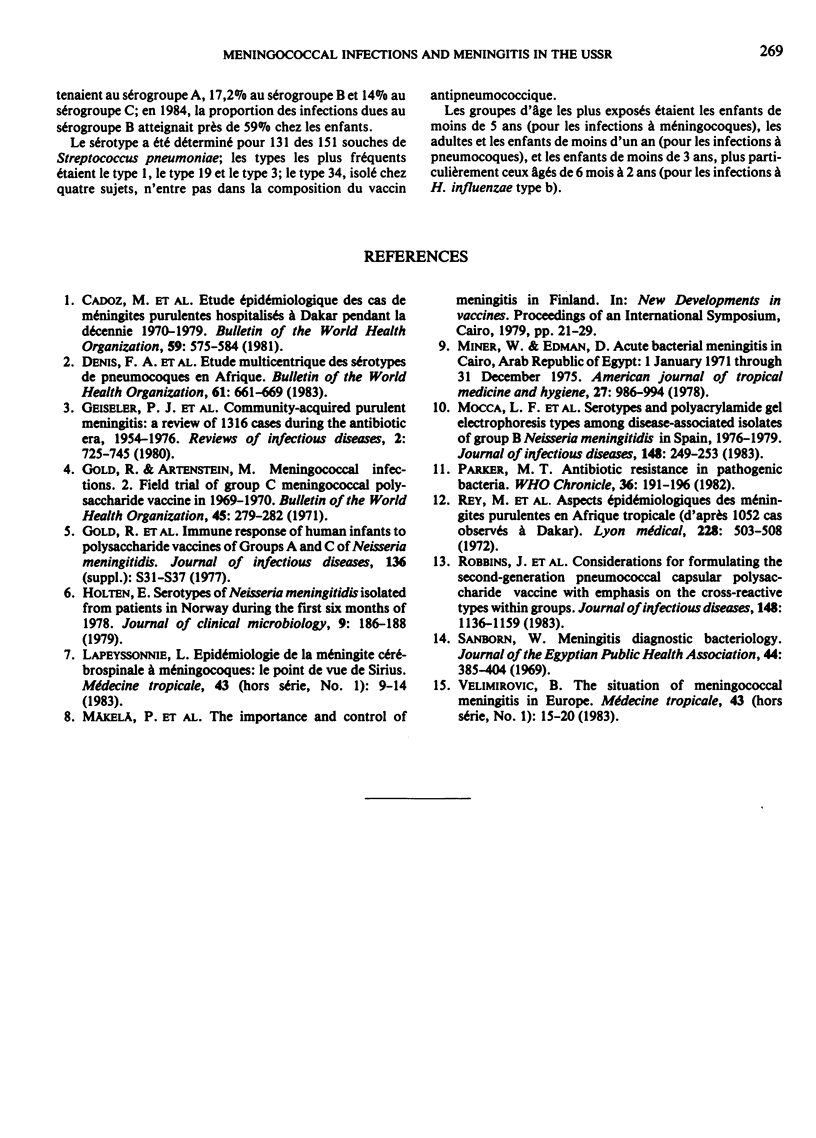
Selected References
These references are in PubMed. This may not be the complete list of references from this article.
- Denis F. A., Greenwood B. D., Rey J. L., Prince-David M., Mboup S., Lloyd-Evans N., Williams K., Benbachir I., El Ndaghri N., Hansman D. Etude multicentrique des sérotypes de pneumocoques en Afrique. Bull World Health Organ. 1983;61(4):661–669. [PMC free article] [PubMed] [Google Scholar]
- Geiseler P. J., Nelson K. E., Levin S., Reddi K. T., Moses V. K. Community-acquired purulent meningitis: a review of 1,316 cases during the antibiotic era, 1954-1976. Rev Infect Dis. 1980 Sep-Oct;2(5):725–745. doi: 10.1093/clinids/2.5.725. [DOI] [PubMed] [Google Scholar]
- Gold R., Artenstein M. S. Meningococcal infections. 2. Field trial of group C meningococcal polysaccharide vaccine in 1969-70. Bull World Health Organ. 1971;45(3):279–282. [PMC free article] [PubMed] [Google Scholar]
- Holten E. Serotypes of Neisseria meningitidis isolated from patients in Norway during the first six months of 1978. J Clin Microbiol. 1979 Feb;9(2):186–188. doi: 10.1128/jcm.9.2.186-188.1979. [DOI] [PMC free article] [PubMed] [Google Scholar]
- Miner W. F., Edman D. C. Acute bacterial meningitis in Cairo, Arab Republic of Egypt, 1 January 1971 through 31 December 1975. Am J Trop Med Hyg. 1978 Sep;27(5):986–994. doi: 10.4269/ajtmh.1978.27.986. [DOI] [PubMed] [Google Scholar]
- Mocca L. F., del Real G., Frasch C. E. Serotypes and polyacrylamide gel electrophoresis types among disease-associated isolates of group B Neisseria meningitidis in Spain, 1976-1979. J Infect Dis. 1983 Aug;148(2):249–253. doi: 10.1093/infdis/148.2.249. [DOI] [PubMed] [Google Scholar]
- Parker M. T. Antibiotic resistance in pathogenic bacteria. WHO Chron. 1982;36(5):191–196. [PubMed] [Google Scholar]
- Rey M., Lafaix C., Mar I. D., Trevoux C. Aspects epidémiologiques des méningites purulentes en Afrique tropicale (d'après 1 052 cas observés à Dakar. Lyon Med. 1972 Nov 26;228(18):503–508. [PubMed] [Google Scholar]
- Robbins J. B., Austrian R., Lee C. J., Rastogi S. C., Schiffman G., Henrichsen J., Mäkelä P. H., Broome C. V., Facklam R. R., Tiesjema R. H. Considerations for formulating the second-generation pneumococcal capsular polysaccharide vaccine with emphasis on the cross-reactive types within groups. J Infect Dis. 1983 Dec;148(6):1136–1159. doi: 10.1093/infdis/148.6.1136. [DOI] [PubMed] [Google Scholar]
- Sanborn W. R. Meningitis diagnostic bacteriology. J Egypt Public Health Assoc. 1969;44(4):385–407. [PubMed] [Google Scholar]


